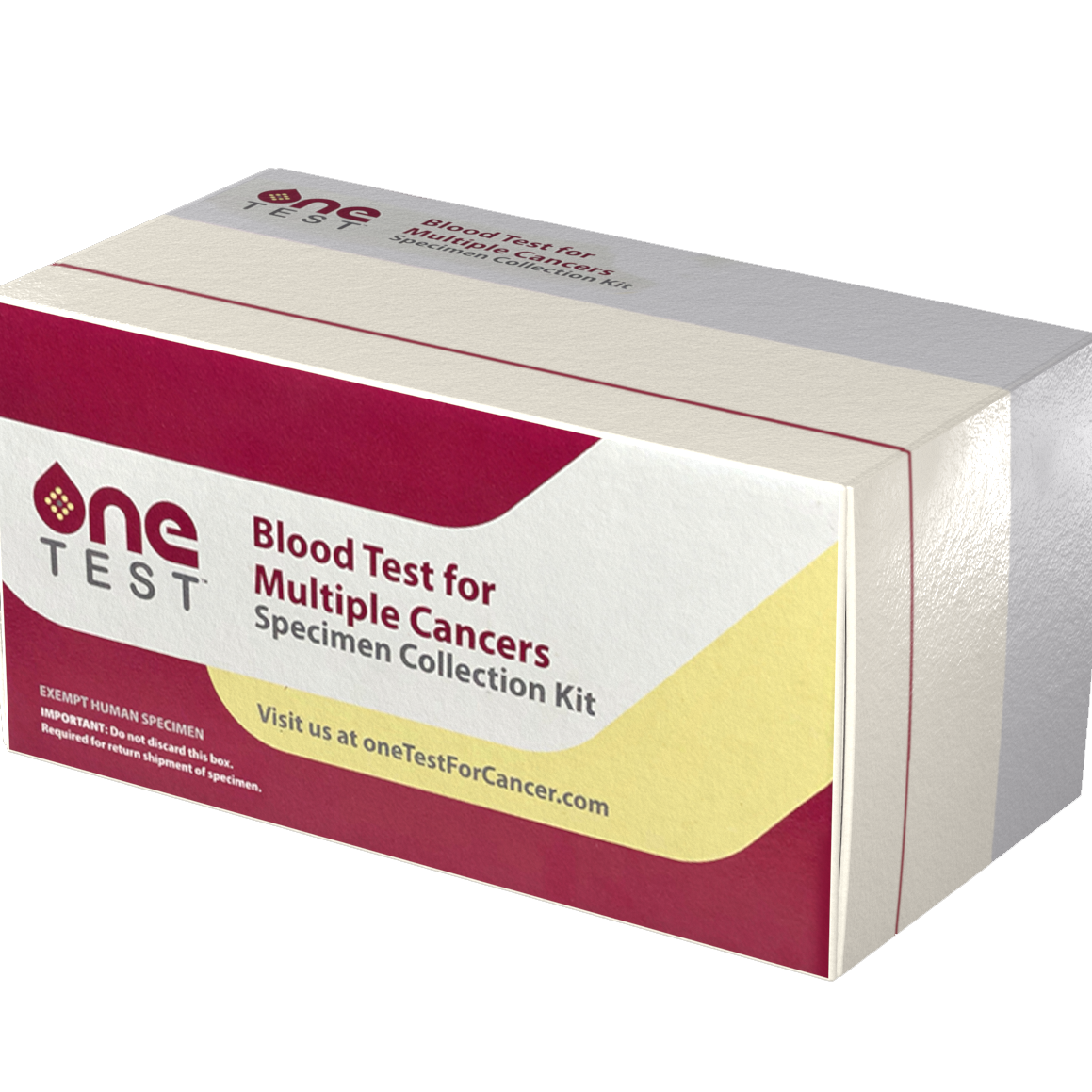OneTest™ – Multi-Cancer Test – NCFW
$189.00 Original price was: $189.00.$142.50Current price is: $142.50.
OneTest™ helps detect cancers earlier, at more treatable stages with one simple blood test.
A simple blood test for multiple cancers, harnesses the power of Artificial Intelligence to help identify the disease at an earlier, more treatable stage.
OneTest™ requires a physician’s authorization and one (1) tube of blood. Your OneTest™ collection kit will be mailed to you after your purchase
Out of stock
Description
Why use OneTest™?
It can help with early detection of lung, liver, pancreas, and other cancers that are not widely screened for in the United States.
Broad cancer screening for the most common types of cancer is available in many countries, however, in the US, cancer screening is normally limited to colon cancer, plus breast and cervical cancer for women, and prostate cancer for men. OneTest™ is now available in the US to screen for multiple types of cancers, including lung, liver, pancreatic, ovarian, prostate, kidney and others.
We measure tumor antigens (not genes) which can help detect cancer now, not in the future
Many popular DNA testing companies today offer not only ancestry analysis, but also tests for inherited genetic abnormalities that pre-dispose the consumer to various diseases. Such tests have very limited value for early cancer detection since recent studies have confirmed that fewer than 5% of the genetic mutations that cause cancer are inherited. Instead, most cancer-causing mutations result from random DNA copying errors over time.
Our algorithms provide better accuracy than tumor markers alone.
We use machine learning to compare biomarker levels and other characteristics such as age and gender with a vast database of 28,000 subjects tested over 12 years. This approach has been demonstrated to help detect nearly twice as many cancers as biomarker testing alone. (See Accuracy, Reliability & Scientific Support for more details.)
OneTest™ is powered and validated by real-world data from asymptomatic individuals
Most biomarker-based cancer tests are developed and validated using stored laboratory blood samples from cancer patients. The purported accuracy of these tests usually drops considerably when they are later used in a real-world screening setting (i.e. Individuals without signs or symptoms of cancer).
Additional Information
| Weight | 32 oz |
|---|---|
| Dimensions | 8 × 6 × 4 in |
How to Order
A blood specimen collection kit will be shipped to you after purchasing the test and completing a brief health questionnaire and some other forms.
Please take the collection kit with you when you visit an affiliated retail clinic or your doctor.
Expect results to be posted to our Portal within about 7-10 days of receipt of your blood specimen in our lab.
Discuss your results with the doctor who ordered the test who will share access to our Portal.
Accuracy Reliability
To learn more about the accuracy, reliability and scientific support, please refer to the following page
Shipping Information
- After placing your order, you receive a test kit within 1 week. Each kit contains a specimen tube, ice packs, a returnable insulated shipping box, shipping pouch and return shipping label.
- When your kit arrives, remove the 2 ice packs and put in your freezer for a minimum of 48 hours to completely freeze.
- When you are ready to get your blood specimen collected, bring your kit and all of the components, including the frozen ice packs, and the return shipping label.
- When your specimen has been collected, immediately pack the specimen in the shipping container along with the ice packs and return to the lab using the shipping label that is provided.
- Blood specimens must be received within 72 hours of being drawn.
